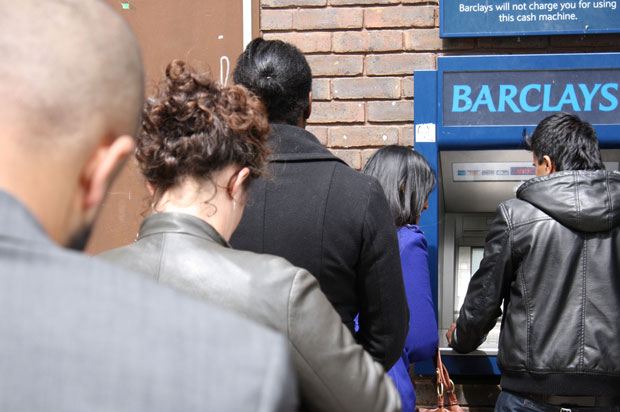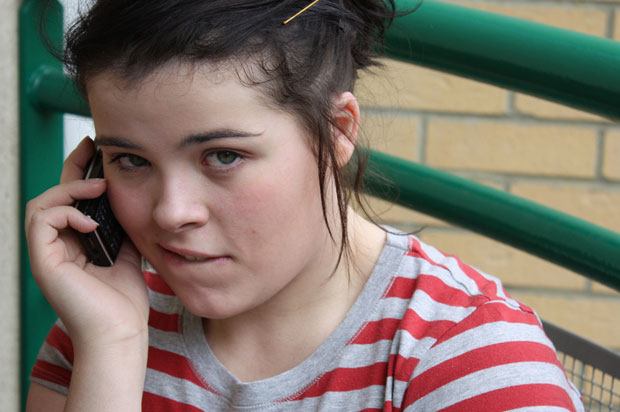Choosing a bank
So choosing a bank may not be as interesting as choosing what to eat for dinner, but it could save you ridiculous amounts of money over your lifetime. Here's what to look out for.

Online banking
Choosing a bank needn’t be a complicated choice, but it’s best to understand the different thing thats each can offer you. Chances are the banks you’re looking at will have an online service, but is it any good? Banking online means you’re more likely to manage your money properly because you can check your account any time. Your bank is likely to funnel you in the direction of online money-management tools and mobile banking because they’re cheaper (for them!).
Despite all this, some financial institutions are unacceptably bad at the internet. And, frankly, they don’t really deserve your custom. A bit of internet research should at least help you avoid the worst offenders.
Does your bank have a friendly high street presence?
Sometimes you need the traditional bank treatment, whether it’s to discuss a loan or mortgage or to do a complex transaction. You don’t want to travel miles for the pleasure, so make sure your bank has also mastered the art of face-to-face communication. Customer services must still exist somewhere!
Check their overdraft fees
An almost inevitable by-product of being young is being occasionally overdrawn. So, comparing overdraft fees of different banks and other charges is a good way of saving money.
Ideally, pick somewhere that offers an interest-free overdraft, and compare what the fees are if you go overdrawn. There can be quite a difference! If you’re looking for more info, you can find out everything you ever wanted to know about overdrafts in this article.
Gimme some free stuff!
Sometimes banks offer all sorts of exciting (skateboard!) and not-so-exciting-but-useful (low interest rates) incentives to get you to play with them. Be careful though, and check how good your account with them will be after they’ve finished wooing you.
Do you care about ethical banking?
‘Ethical banking’ might sound like an oxymoron, but these institutions aren’t all created equal when it comes to doing bad things with your money. Some invest in dodgy trades like arms, mining and fossil fuels, and some don’t. If you’re ethically minded, it might be worth doing some research before choosing a bank account.
Move Your Money is a great website that lets you check how ethical each bank and building society is.
Credit unions may be more ethical than your usual McBanks and are worth investigating, but they tend to be local and not always ahead of the curve when it comes to online banking.
Isn’t switching banks a really big deal?
We’re more likely to change long-term lovers than bank accounts, but actually, switching from one bank to another is simple. Or it’s supposed to be anyway. Theoretically you just have to pick somewhere better and let them do all the work (bear in mind they’ll probably drop a ball or two, so you’ll have to pester them to make sure all your direct debits have been transferred). The switching process should take less than seven working days and you can even choose the date it all goes live.
Bank accounts for people with a poor credit rating
Not everyone can get a regular high street bank account. If you’ve got poor credit rating or have a low income, banks may be reluctant to allow you to open standard current or savings accounts.
You can also have problems opening a new regular account if you already have one that is overdrawn. If you’ve had these issues, a basic bank account is an alternative.
What is a basic bank account?
This type of bank account was specifically created to give everyone access to banking facilities. Unlike an ordinary bank account, basic accounts will not allow you to go overdrawn or have a cheque book, and it’s unlikely that you’ll get interest paid on your money.
But they do give you somewhere to deposit your money and a cash card to withdraw it. Many high street banks and building societies now offer basic bank accounts.
Basic bank accounts have the following features:
- Somewhere to deposit your wages, salary, benefits and tax credits
- A cash card to make withdrawals from cash machines. Some accounts will give you a debit card that also allows you to make purchases
- No setup charges or fees associated with the bank
- You can open an account with no money or as little as £1
- You can also pay cheques and cash into the account
- Bills can be paid via direct debit from the account and some banks also allow you to set up standing orders. However, you could be charged if you set up a direct debit and then don’t have enough money to pay for it
Before you open a basic bank account, you should make the same checks as you would when choosing a regular bank account.
Thanks to CAB for help with this article. If you’re look for more advice when it comes to money:
Next Steps
- The Money Helper offers free, unbiased and independent advice about all financial matters. 0800 138 7777
- Chat about this subject on our Discussion Boards.
By Holly Turner
Updated on 30-Jul-2021
No featured article














